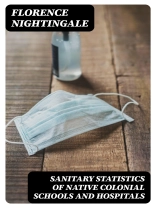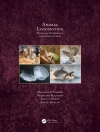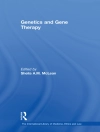In her pioneering work, ‘Sanitary Statistics of Native Colonial Schools and Hospitals, ‘ Florence Nightingale employs a meticulous analytical style to illuminate the dire conditions prevalent in medical and educational institutions under British colonial rule. Nightingale skillfully combines empirical data with sociocultural observations, offering a profound critique of the hygienic neglect faced by native populations. This work situates itself within the broader Victorian discourse on health and social reform, highlighting the intersection of public health and colonial policy, while also advocating for sanitation as a moral imperative and a crucial component of healthcare administration. Florence Nightingale, renowned as the founder of modern nursing, was profoundly influenced by her experiences during the Crimean War, where her observations of unsanitary hospital conditions ignited her commitment to health reform. Her background in statistics and her relentless advocacy for improved sanitary practices fueled her research in the colonies, aiming to raise awareness and drive change in public health policies. Nightingale’s dedication to social justice and her innovative approach to health metrics set the foundation for future health reforms. This essential reading is recommended for scholars, healthcare professionals, and anyone interested in public health, colonial studies, or the history of nursing. Nightingale’s work invites readers to engage critically with the historical context and implications of sanitary conditions, making it a vital resource for understanding the complexities of health reform in a colonial framework.
Giới thiệu về tác giả
Florence Nightingale (1820–1910), known as the founder of modern nursing, was an English social reformer, statistician, and the first woman to be welcomed into the Royal Statistical Society. While she is best known for her role in professionalizing nursing roles during the Crimean War, she also made significant contributions to the realm of public health and statistics. Nightingale’s extensive work, ‘Sanitary Statistics of Native Colonial Schools and Hospitals’, exemplifies her pioneering efforts in sanitary reform and medical statistics. In this text, she applied her astute analytical skills to assess and improve the health conditions in colonial schools and hospitals, demonstrating her commitment to health outcomes and policy reform on a global scale. Nightingale’s literary style combines meticulous research with persuasive advocacy, underpinned by her innovative use of charts and graphs to present statistical data effectively. Her writings have underlined the importance of sanitary conditions in health care settings and have had a lasting impact on both nursing education and public health policies. She is often credited with transforming nursing into a respectable profession for women and improving the standards of public health service. Nightingale’s legacy endures through her writings and the international acknowledgement of her contributions to healthcare and statistics.












